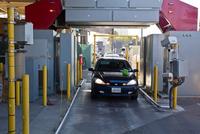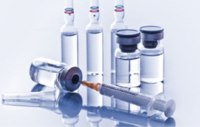-
More stringent climate policies mean hard choices for coal plant operators
Limiting climate change to 2°C means shutting down coal power plants — an unpopular proposition for coal power companies. A new study shows, however, that delaying climate policies could prove even worse for power plant owners. The reason: new power plants being built now, especially in China and India, are built to run for 30-50 years, paying off only after years of operation. Stringent climate policies, however, could make the cost of emission so high that coal power generation is no longer competitive, leaving new power plants sitting idle and their owners and investors with huge losses — a problem known as stranded capacity.
-
-
CBP takes another stab at high-tech border security

The George W. Bush administration’s effort to build a high-tech border security system – the Boeing-led SBINet – was a failure, and the Obama administration shut it down in 2011. CBP is now trying again, this time with Elbit Systems as the lead contractor. The hope is that the lessons of the doomed SBINet, and Elbit’s experience in building high-tech defensive systems along Israel’s borders, would yield better result this time around.
-
-
Food-related disease outbreaks can teach us about the consequence of food terrorism
Since unintentional food-related outbreaks have become so common, policy makers could use data from unintended foodborne disease outbreaks to estimate the effects of intended foodborne disease outbreaks. The impact on trade and economies is the primary motive for food terrorism, according to the World Health Organization (WHO), but beyond the financial loss, such intended foodborne disease outbreaks may even impact political stability.
-
-
University scientific research has enormous short-term value: study
Using new data available to examine the short-term economic activity generated by science funding, researchers have for the first time been able to illuminate the breadth of the scientific workforce and the national impact of the research supply chain that is funded by federal grants. They found that university research is a key component of the U.S. economic ecosystem, returning the investment through enormous public value and impact on employment, business, and manufacturing nationwide.
-
-
Anti-immigrants backlash in Europe intensifies
Anti-immigration groups and parties are enjoying a surge in many European countries, including Britain, France, and Austria, as many European economies face high unemployment and declining wages. The open-border policies of the European Union (EU), which allow citizens of EU member states to work and receive social welfare anywhere within the EU, have led many citizens to call for immigration limits and quotas.
-
-
Capabilities-based – rather than actuarial -- risk analysis would make businesses safer
Many businesses and organizations, when applying cost-benefit analysis and a risk-management analysis to measure cyber risk, are relying on the assumption that the likelihood of a future attack depends heavily on how many attacks have occurred in the past. Since there has yet to be a full-scale attack on critical infrastructure in the United States, it is simple to conclude that the risk of a cyberattack on critical infrastructure is low, therefore justifying low investment in additional security initiatives. An actuarial risk analysis may conclude that there is little likelihood of such as attack occurring, but a capabilities-based risk analysis recognizes that since adversaries are capable of such an attack, it is in an organization’s best interest to secure against it.
-
-
W.Va. residents still wary about their drinking water
The January 2014 chemical spill in West Virginia, which contaminated the drinking water of 300,000 residents, has changed how residents use public water. Authorities claimed the water was safe for consumption on 13 January, since MCHM levels had dropped below a federal safety threshold of one part per million. Residents remain skeptical, with some collecting rain water, and other relying on clean water distributed by non-profits.
-
-
Lead ammunition should be replaced by steel in shooting sports: experts
Researchers say that Olympic athletes specializing in shooting use one thousand cartridges per week and scatter some 1.3 tons of lead yearly, with harmful effects for surrounding animals and agricultural land. The researchers urge the International Olympic Committee and other sports organizations to replace lead ammunition with steel, which is non-toxic and contains similar technical characteristics.
-
-
Positive results reported from single dose anthrax vaccine studies

Immunovaccine and Pfenex announced positive results from anthrax challenge studies in rabbits using Pfenex’s mutant recombinant Protective Antigen (mrPA) formulated with Immunovaccine’s DepoVax delivery system. Data demonstrates 100 percent protection against a lethal anthrax challenge in animals after vaccination with as little as 0.33 microgram of mutant recombinant Protective Antigen. Dose response observed in the first twenty-eight days following vaccination.
-
-
U.S. corporations aware of current, future water risks
A new survey shows that nearly 60 percent of responding companies — the majority Fortune 500 and publically traded, representing virtually every industry sector — indicated that water is poised negatively to affect business growth and profitability within five years, while more than 80 percent said it will affect their decision on where to locate facilities. This is a stark increase from only five years ago, when water issues affected business growth and profitability for less than 20 percent of responding companies.
-
-
DHS hits reset button on the Electronic Immigration System (ELIS)
DHS has awarded InfoZen 3-year, $11.9 million contract — the first of multiple contracts — for the Electronic Immigration System (ELIS), designed to process immigration forms. This is the latest attempt to digitize the processing system after spending roughly $1 billion and five and a half years under a contract led by IBM. IBM’s “design is poorly thought through and inconsistently applied by the developers. The result is duplication of efforts, time spent on rework, slowness in debugging problems, poor quality code, etc.,” said CIS chief information officer Mark Schwartz.
-
-
House mulls Syria-related sanctions on Iran

U.S. House legislators are considering new terrorism-related sanctions on Iran, targeting the country’s support for Hezbollah, after ceding to the Obama administration’s request to back off on sanctions related to Iran’s nuclear program. The House Foreign Affairs Committee hopes the move will reflect their independence from the White House and also bring more focus to the Syrian crisis.Lawmakers say the bill would reflect the most effective ways to disrupt Iran’s financial support of Hezbollah.
-
-
Global insured losses from catastrophes were $45 billion in 2013
Total economic losses from natural catastrophes and man-made disasters were $140 billion in 2013. Global insured losses were around $45 billion in 2013, with large contributions from flooding and hail events. The economic losses of $140 billion were down from $196 billion in 2012, and below the 10-year average of $190 billion. Around 26,000 lives were lost in natural catastrophes and man-made disasters in 2013.
-
-
The costs of using wind energy, natural gas for electricity virtually equal
The costs of using wind energy and natural gas for electricity are virtually equal when accounting for the full private and social costs of each, making wind a competitive energy source for the United States, according to a new study on the federal tax credit for wind energy. The analysis shows that wind energy comes within .35 cents per kWh when levelized over the 20-year life of a typical wind contract, compared on an equivalent basis to the full costs for natural gas-fired energy.
-
-
Cryptolocker has you between a back-up and a hard place

Cryptolocker, a particularly vicious form of malware that first appeared in September 2013, is a game-changer. After getting into your computer, it will encrypt all your data files, from your word documents to your photos, videos, and PDFs. It will then ask for a ransom of around $300 or 0.5 bitcoins to get them back. It has been one of the most commented developments in computer security circles in recent times, and copycats are appearing. The criminals are netting tens or hundreds of millions in ransoms, and at least some of the ill-gotten gains secured from Cryptolocker are likely to be reinvested. The criminals behind it will likely pay for access to bigger botnets to reach a wider base of victims. Future versions of the virus will in all likelihood be more prevalent and will extend across other platforms, like smartphones and tablets.
-